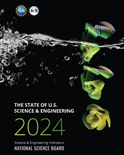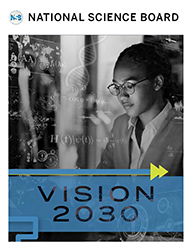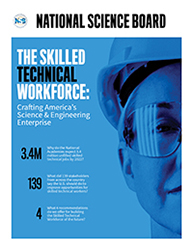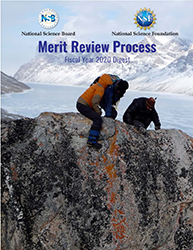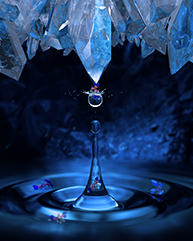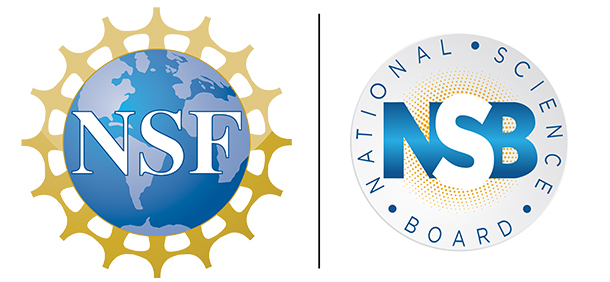
NSB congratulates 2017 Physics Nobel Laureates for monumental achievement with LIGO
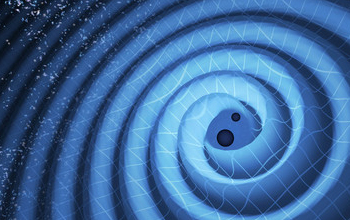
Image credit: LIGO/T. Pyle (Credit and Larger Version)
October 4, 2017
“Congratulations to Rai Weiss, Kip Thorne, and Barry Barish on this richly deserved award,” said Dr. Maria Zuber, Chair of the National Science Board and Vice President for Research at MIT. “It’s a special honor to see our former Board colleague Barry Barish recognized for his contributions as LIGO project director. Science is an enterprise that is inherently about the future – it’s about knowing things tomorrow that we don’t know today, about increasing our understanding of the universe. Science is a concrete expression of confidence and optimism. That confidence, and faith in human curiosity continues to bear fruit – as we see with the magnificent discoveries made by LIGO.”
The National Science Foundation began supporting early studies of LIGO in 1975, and the project formally came to the National Science Board in 1984. This long-term support for LIGO by the federal government, through the NSF, has paid off, opening up a completely new way for us to observe the universe - by measuring the ripples in the fabric of spacetime itself. The discoveries made with LIGO speak to why scientists - and all of humanity - should continue to dream big, to continue exploring, and to imagine what might be possible.
For more information, please contact Nadine Lymn, NSB Communications Director, nlymn@nsf.gov, (703) 292-2490.
About NSB
Jointly the NSB and the Director pursue the goals and function of the NSF. The Director is the ex-officio 25th member of the NSB. The NSB establishes NSF policies within the framework of applicable national policies set forth by the President and Congress. NSB identifies issues critical to NSF's future, approves the agency's strategic budget direction and the annual budget submission to the Office of Management and Budget, and consults on new major programs and awards. The NSB also provides the President and Congress with a biennial report on U.S. progress in science and technology, Science and Engineering Indicators, providing comparisons to other nations in the areas of research and development, STEM education, and workforce training.
The President appoints Board members for six-year terms and may reappoint members for a second term. Members are drawn primarily from universities and industry and selected for their eminence in research, education, and records of distinguished service. Collectively, the Board represents a variety of science and engineering disciplines and regions across the United States.
Useful NSB Web Sites:
Home Page: http://www.nsf.gov/nsb
Media Contact: http://www.nsf.gov/staff/staff_bio.jsp?lan=nlymn&org=NSF
News: http://www.nsf.gov/nsb/news
Meetings: http://www.nsf.gov/nsb/meetings
Publications: http://www.nsf.gov/nsb/publications
Facebook: https://www.facebook.com/NationalScienceBoard
Twitter: Twitter: https://twitter.com/intent/user?screen_name=NSF_NSB
YouTube: https://www.youtube.com/channel/UCkrHRzuGSrPp2haQs0T_Pww
To view PDF documents, please download Adobe Acrobat Reader.
